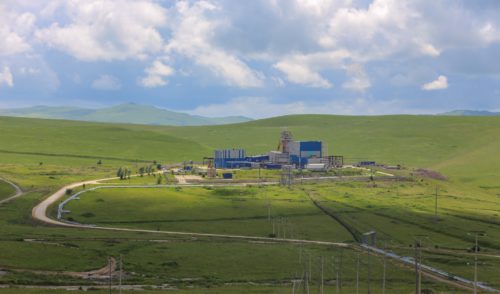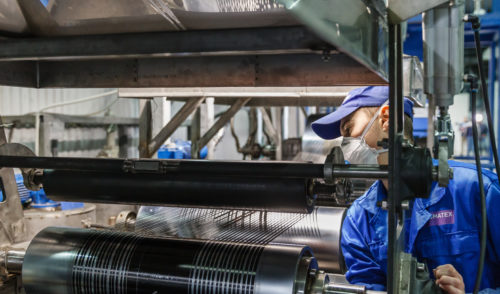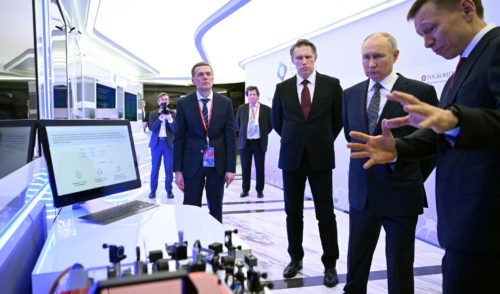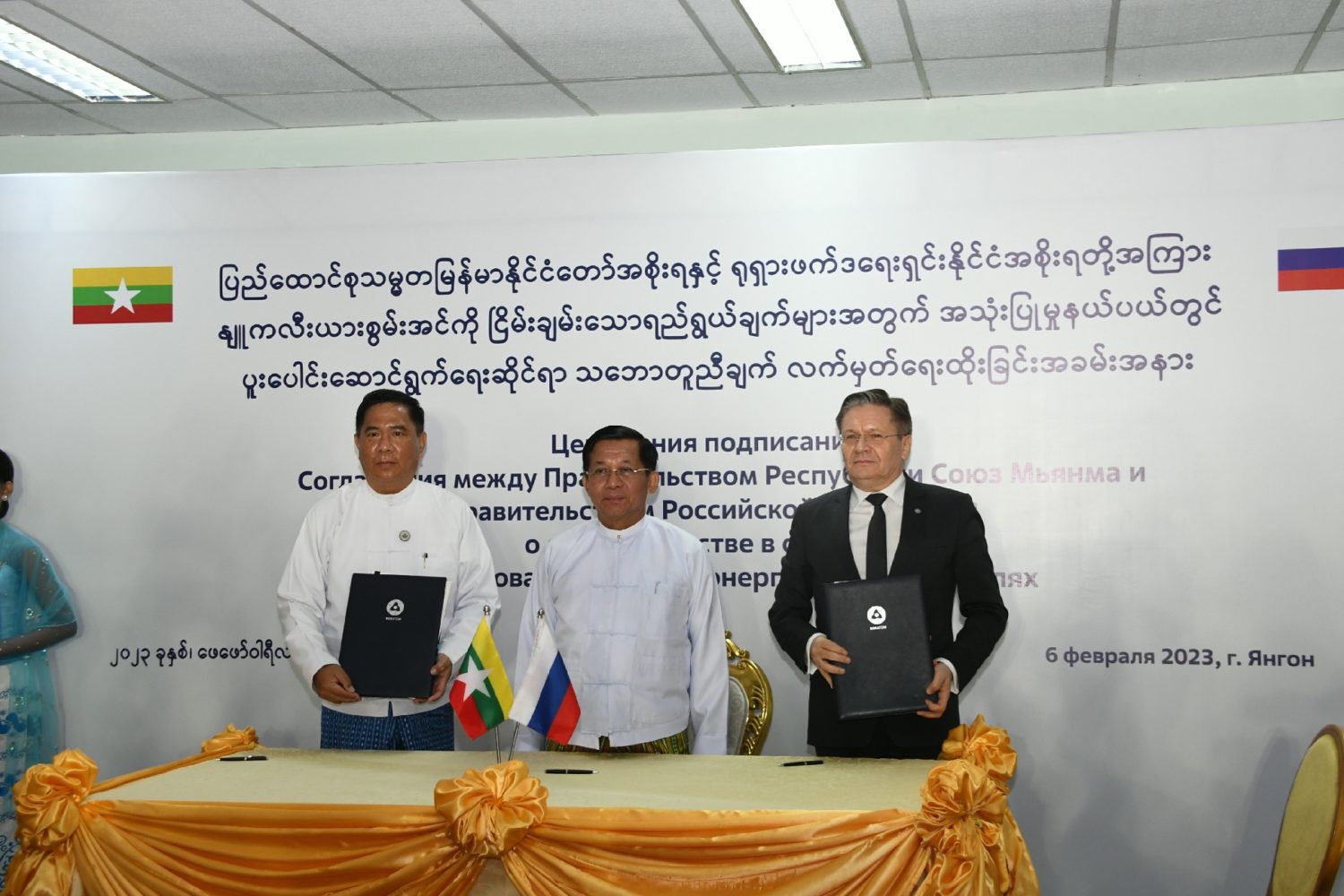
Acceleration to Myanmar
back to contentsIn early February, Rosatom Director General Alexey Likhachev and Prime Minister and Chairman of the State Administration Council of Myanmar, Senior General Min Aung Hlaing met in Yangon, Myanmar’s largest city and former capital, to sign an intergovernmental agreement on cooperation in peaceful uses of nuclear energy. This brings Myanmar another step closer to building a new industry that will contribute to national development.
SMR+
“The new industry will undoubtedly have a positive effect on Myanmar’s economy, industry and power production. Nuclear technology will ensure supply of clean and reliable power and give a strong impetus to the development of natural sciences, education and professional training. We value the fact that Myanmar has given preference to Russian nuclear technology,” Alexey Likhachev said at the ceremony.
The agreement provides for Russia and Myanmar to collaborate on building a small modular reactor in Myanmar as part of a broader partnership program. “This agreement starts our cooperation in carrying out a small modular reactor project and, more generally, in using nuclear technology across various applications. It will contribute to the social and economic development of the country,” Min Aung Hlaing stressed.
History of cooperation
Diplomatic relations between the two countries were established as far back as 75 years ago. “Our relations have traditionally been friendly and trusting throughout those 75 years. It so happened that the facilities symbolizing our bilateral cooperation and friendship had been built by the beginning of the sixties or in the second half of the sixties – they are a university of technology, a hotel in Yangon, a hospital in Taunggyi, and a dam in Chemoltau,” Russian Ambassador to Myanmar Nikolai Listopadov said in an interview about joint projects.
Nuclear is a new area of cooperation. Myanmar grew interested in nuclear technology back in the 2010s. In June 2015, representatives of the two countries signed a memorandum of understanding at the Saint Petersburg International Economic Forum with an intention to cooperate in peaceful uses of nuclear energy. The key areas of cooperation set out in the memorandum were nuclear medicine, fundamental science, and radioecology.
In October 2016, a working group established pursuant to the memorandum held its first meeting to discuss nuclear research projects and professional training. The work went on and reached a new level in 2022.
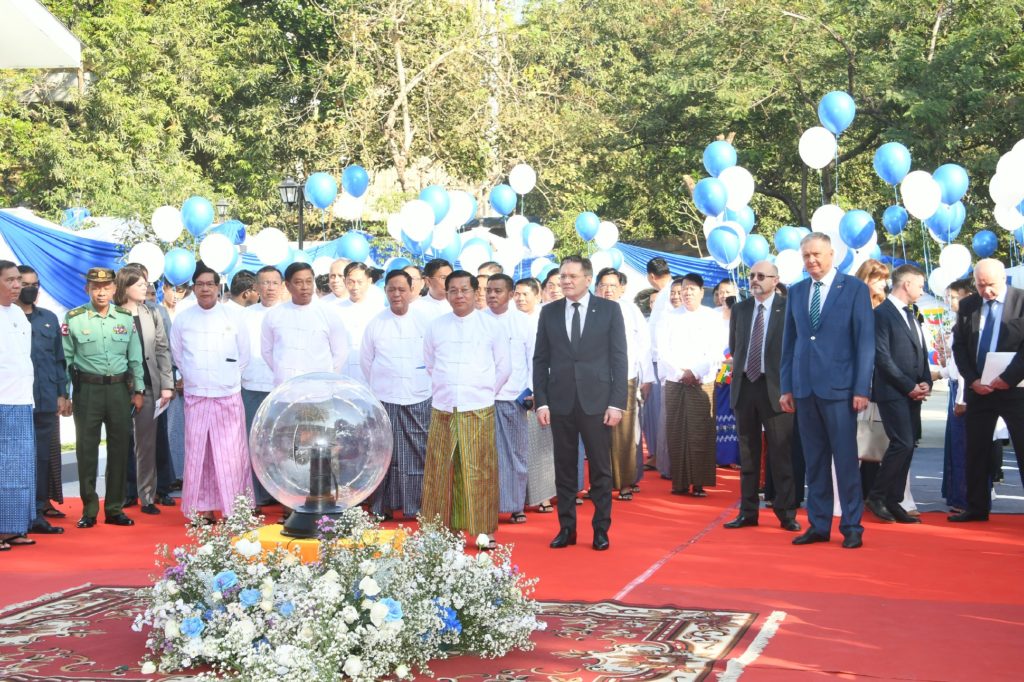
In July 2022, Alexey Likhachev and Myanmar Science and Technology Minister Myo Thein Kyaw met in Moscow to sign two memorandums of understanding between Rosatom and the Myanmar Ministry of Science and Technology in the presence of Min Aung Hlaing. The documents provided for the cooperation in professional education and staff training for the nuclear power industry and in raising public awareness of nuclear energy in Myanmar.
In September, Rosatom, the Ministry of Science and Technology, and the Ministry of Electrification of Myanmar signed a cooperation agreement on peaceful uses of nuclear energy for 2022–2023 at the Eastern Economic Forum. In addition to training the staff and raising public awareness, the agreement provides for the expansion of the bilateral regulatory framework and potential construction of an SMR.
In November, representatives of several Myanmar ministries were made familiar with the capacities of Russian universities, the National Nuclear Research University (MEPhI) and the Moscow Power Engineering Institute (MPEI), and visited Rosatom’s Technical Academy. They learned that MEPhI and MPEI have been teaching students from Myanmar for several decades, offering degrees in power engineering, microelectronics, applied mathematics and other majors.
Prior to the Atomexpo International Forum that took place last year in the Russian city of Sochi, Myanmar representatives visited Rosatom’s facilities in Obninsk and the Leningrad NPP in Sosnovy Bor and were demonstrated an analytical simulator for the VVER-1200 reactor unit, a 3D visualization and prototyping software package for nuclear power plant buildings and structures, and other nuclear facilities.
On November 22, when Atomexpo began, Rusatom Energy Projects and the Department of Electric Power Planning of the Myanmar Ministry of Electricity and Energy signed a memorandum of understanding to conduct a pre-feasibility study for the construction of a small modular reactor in Myanmar.
One more ICAT
On February 6, 2023, an Information Center for Atomic Technology (ICAT) was inaugurated in Yangon. The ceremony was attended by Min Aung Hlaing and Alexey Likhachev, high-ranking guests, and the first visitors, Myanmar schoolchildren and students. On the same day, Russia and Myanmar signed an intergovernmental cooperation agreement on peaceful uses of nuclear energy.
The new information center was founded to educate the people of Myanmar and raise their awareness of nuclear technology, radiation safety, and innovation. ICAT will promote youth’s interest in scientific research and dramatically improve the staff training needed by the country to develop the nuclear industry.
The Yangon Information Center for Atomic Technology is the latest and most advanced in Rosatom’s ICAT network (it is the 25th center in succession and the 6th one abroad). Its interactive exhibition features unique exhibits: visitors can build a ‘city of the future’ using their knowledge, watch how the RITM-200 reactor works, measure their own radioactivity, learn about radiopharmaceuticals, and much more. ICAT also has an advanced video room. Students and schoolchildren have an opportunity to watch educational films and learn how the atom is structured, where nuclear energy comes from and how it is released, how the nuclear power plant works, and where else nuclear technologies are used.
During this year, ICAT will host seminars for Myanmar media and expert communities, the Science and Atom Festival, and lectures by Russian experts from MEPhI for Myanmar university students.


